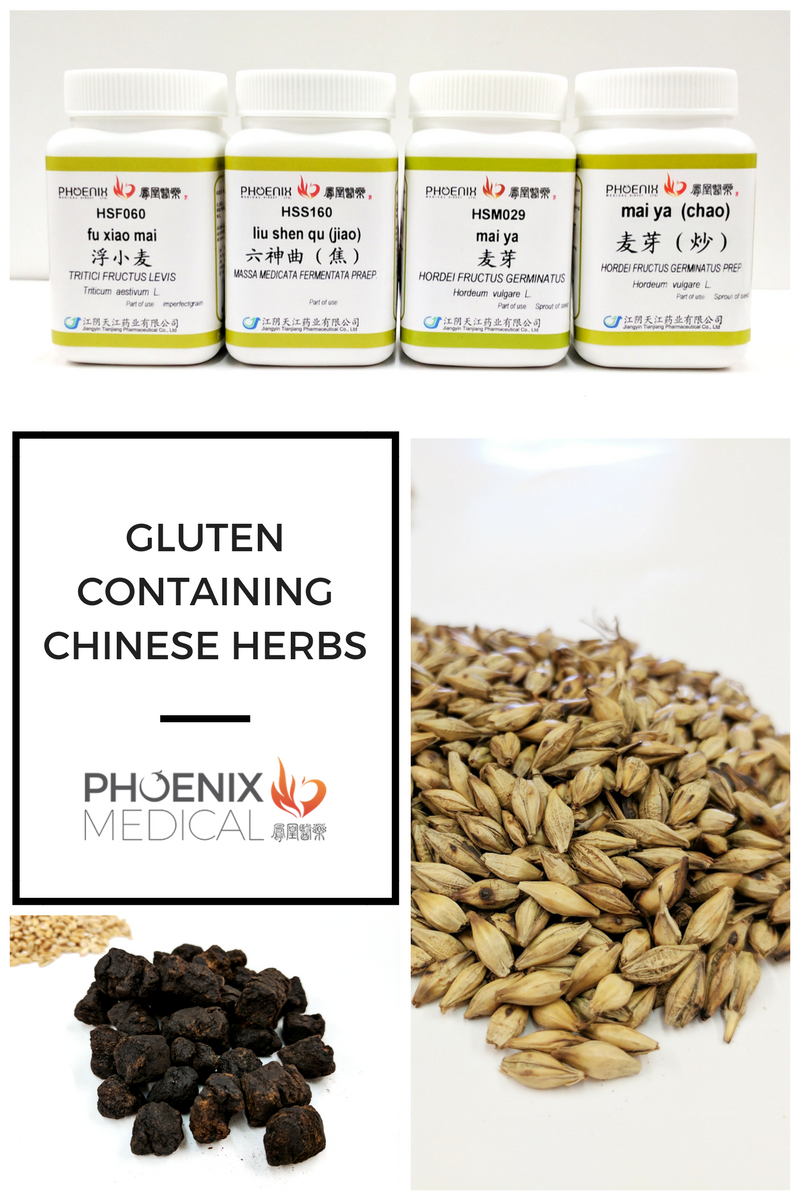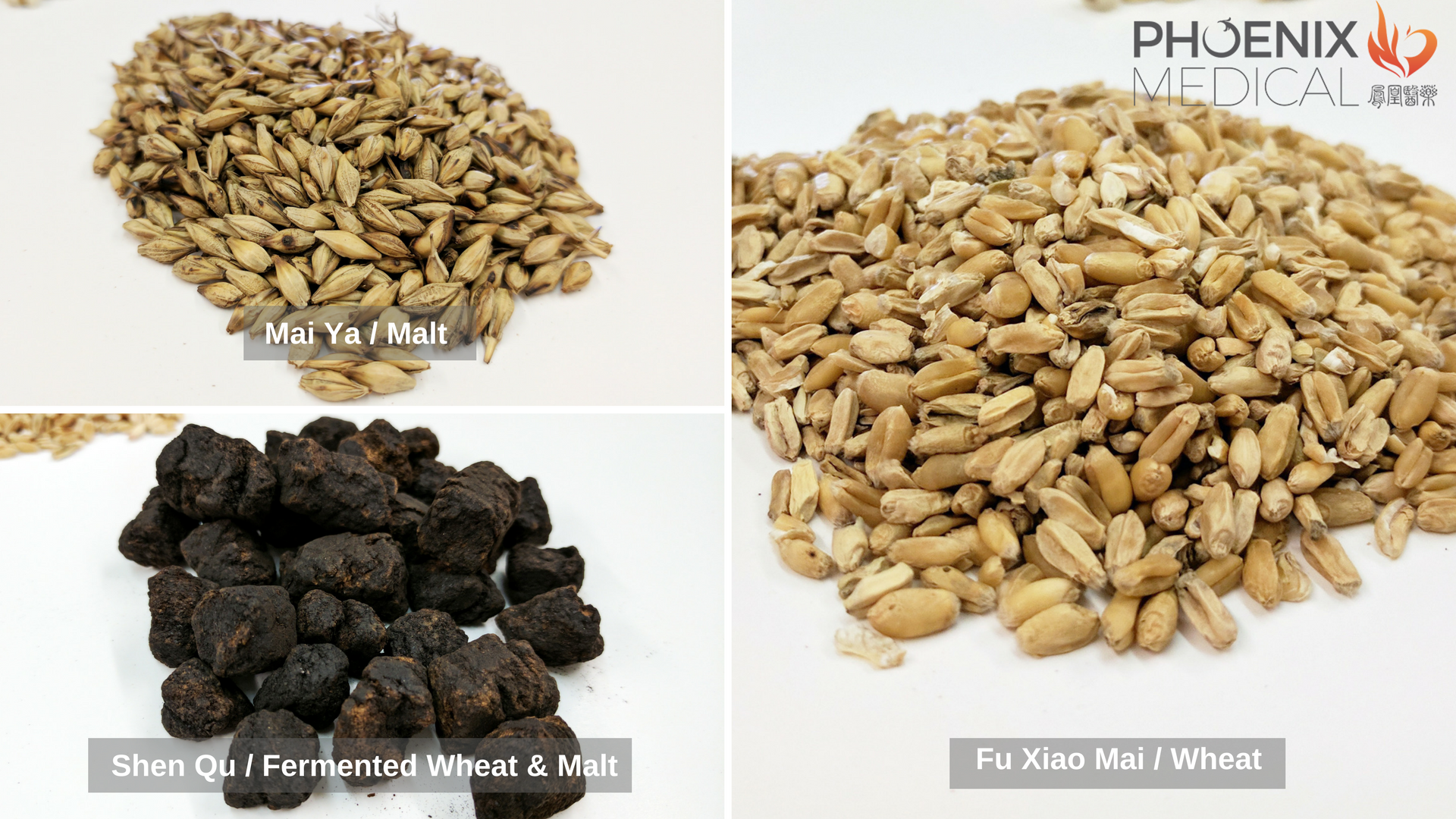Information about gluten
Do Phoenix Concentrated Granules Contain Gluten?
This is an increasingly common question that we get asked. Coeliac disease (coeliac sprue) and gluten intolerance are becoming more and more prevalent in western society.
Coeliac disease is an autoimmune condition whereby the body produces antibodies to attack the deaminated gliadin protein in wheat, once it has passed the intestinal barrier. This immune response causes inflammatory damage to the intestinal lining. Symptoms include bloating, diarrhoea, constipation, abdominal pain, wind, nausea, tiredness, intestinal permeability, anaemia, nutrient deficiencies and unexpected weight loss.
Gluten intolerance refers to a lack of gluten digesting enzymes, which can then cause digestive symptoms a few hours after ingestion such as abdominal pain, gas, bloating and diarrhoea. Gluten sensitivity or non-coeliac gluten sensitivity is where the gluten triggers an IgG antibody response, which can lead to symptoms similar to Coeliac disease and Gluten Intolerance such as bloating, constipation, diarrhoea, abdominal pain, depression, muscle and joint pain, brain fog and more. As IgG antibodies have a half-life of approximately 21 days, the symptoms can persist for days or weeks so sensitivity to gluten may not easily be recognised.
Gluten is a collective name for the proteins found in wheat, barley and rye. Oats do not naturally contain gluten but cross-contamination can occur as grain-based products are often manufactured in the same facility. Furthermore, the avenin proteins in oats have a similar structure to the gliadin in gluten-containing foods, so coeliac patients are often advised to avoid oats too.
In Chinese medicine, some herbs naturally contain gluten, i.e. Fu Xiao Mai (wheat), Mai Ya (malt), Shen Qu (fermented wheat/malt). These herbs must be avoided when prescribing for a patient that suffers from Coeliac disease. There are also some herbs that have been processed using a method of PaoZhi processing called 'Fu Chao', which means 'frying with wheat bran'. This method enhances the digestive function of the herb. As wheat bran contains gluten, any herbs that are processed with this method must be avoided if your patient has Coeliac disease. Whilst Yi Yi Ren (Coix Seed or Job's Tears, often mistaken for Pearl Barley) is gluten-free, it is one of the herbs that are commonly Fu Chao processed. Please ensure that you use unprocessed Yi Yi Ren.
At Phoenix, we supply a range of dry herbs and concentrated herbal granules. With the exception of naturally occurring gluten in the above herbs, our herbal products do not contain any added gluten. Furthermore, our manufacturers operate a strict GMP practice; following processing of each batch of herbs at each step (i.e. washing, decoction, drying), the machines and equipment are thoroughly cleaned and sterilised, therefore we can guarantee zero cross-contamination.
Unlike other brands, we produce our concentrated granules with the state of the art method of 'Spray Drying Extraction', which allows us to produce a purer end product with high concentrations. In order to produce a granule form, a food-grade binder called Maltodextrin is used at a minimal amount of 5-10%; this is a polysaccharide (a long chain sugar), and therefore is gluten-free. We went the extra mile and asked our laboratory to test the maltodextrin used for any traces of gluten and other allergens. The test results have shown that there are no allergenic components detected. View laboratory test results
Please be aware that other concentrated granule brands on the market use different methods of production and may add varying amounts of CORNSTARCH to avoid clumping from moisture. Whilst cornstarch does not contain gluten naturally, the manufacturers of the cornstarch cannot guarantee there is no gluten cross-contamination, as they may produce other grain-based products in the same facility.
Rest assured that at Phoenix, we strive to supply the safest products at the highest quality, to ensure that patients receive the best treatment possible. If you would like to know more, please get in touch with our team info@phoenixmedical.com
Disclaimer: This information is intended for qualified practitioners only.


